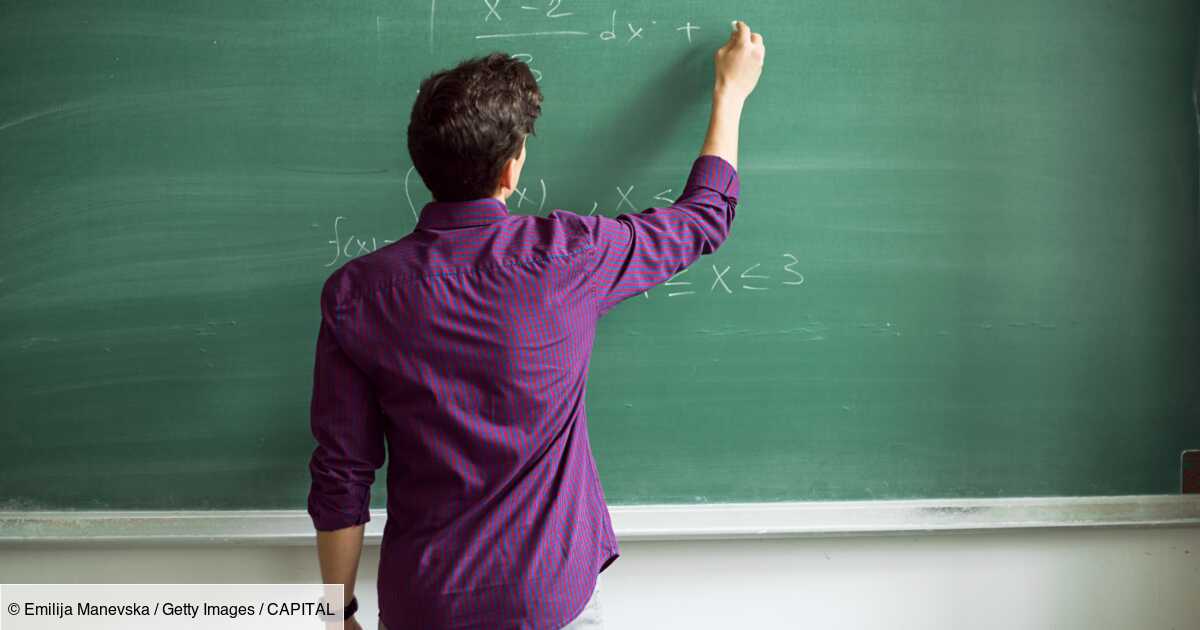Does math scare your kids and are your concepts too distant to help them? This article can help you. Because yes, it is no surprise to anyone: the level of French students has fallen, as shown by the latest research by Pisa (International Program for Monitoring Student Achievement). France is among the worst performing countries.
In addition to a general decline in levels linked to a generation of students stuck with Covid-19, the ‘problem with mathematics’ is not new. But this decline in mathematics levels, which is targeted for 2023, is the largest since the Pisa survey was created in 2000. However, there is no need to remain fatalistic. Here are five tips for young people and adults who want to make progress in a short time.
How to get better at math quickly
Mathematics is everywhere in everyday life, when preparing a trip to calculate your budget, or when doing a sudoku on the beach… But the subject should not be synonymous with complexity. Of course, some operations are difficult and reserved for mathematicians, but this is not true of all math problems. Certain tools make it possible to increase the level, both for students and for adults who want to improve themselves.
Training, the proven technique
Take your textbook, do the exercises from the annals of the Brevet or the Baccalaureate… There are many ways to practice. The most important thing when performing these exercises is to understand the result, but especially the approach to achieve it. This method is time consuming, but can be done effectively. For example, if you do one exercise every evening (except Sunday), you can do at least six per week.
Ghislaine Gueudet, professor of mathematics education at Paris-Saclay University, emphasizes the importance of educational monitoring and dialogue with teachers. “Teachers must work together with the student and, above all, give him appropriate exercises. Ideally, you should not provide the same training to all high school students in the class.», specifies Ghislaine Gueudet. It is also a topic where group work should be emphasized; the teacher must create homogeneous working groups to prevent level differences.
Applications to learn while staying connected
In addition to the timeless holiday books, we now have to find a way to attract the attention of young people and adolescents who are ultra-connected to their mobile phones. Its many applications remain an excellent way to promote education and pedagogy. One of the most downloaded applications out there Photomathematicsthat explains and solves an equation based on a simple photo, or even Microsoft math solver, educational application that solves mathematical problems (equations, etc.).
Popularization videos of mathematics are also popular
These videos are mainly about YouTube allows you to understand a mathematical problem from an innovative angle. These videos, like the one from Yvan Monka of Heda Academy, can supplement students’ teachers’ explanations in case of poorly understood concepts in class. But they also offer the opportunity for those who have left the school corridors to return to them at their own pace. The CNRS has a list of the best YouTube channels about math.
The intervention of a professional, sometimes necessary to resolve the situation
Whether it’s a retired teacher you know or through an agency, it’s easy to find math support. Help can be provided at home or online, for example with video conference courses or sending corrected worksheets and exercises. The tutoring market is changing with the rise of digital technology. Cart table Or GoStudent for example, offering packages based on the student’s needs.
Fully focused on pedagogy to interest the youngest
According to Susanna Zimmermann, professor at the University of Paris-Saclay within the Orsay Institute of Mathematics, we should focus on pedagogy. “Disinterest in mathematics can develop very early in school life, starting in kindergarten. The lessons quickly become too abstract» she notes. To compensate for this disinterest, we must manage to change the way we look at the material. “There are ways to make teaching fun. In Paris, for example, the Maison Poincaré, a real mathematics museum, has opened, making the subject much more lively.,” said Susanna Zimmermann.
Advice for adults who would like to get back into it
Although the Pisa report mentions the declining level of French students, adults can also deepen certain concepts. Ghislaine Gueudet, a university professor, remembers that this is the case MOOC on the France Université Numérique website, where you can follow free digital workshops, and usually on your own and at your own pace.
For adults who stopped their studies before the baccalaureate and who would like to go to university, there is the DAEU (Diploma of Access to University Studies), which allows them to take courses to enter university. Depending on the diploma you are looking for, you can increase your level in mathematics. From now on, there are no more excuses for not doing well in math!
